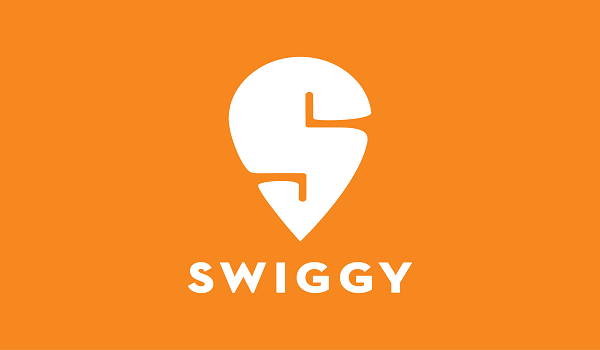
Online food delivery platforms (OFDPs) like Zomato, Swiggy, Foodpanda and UberEats may have to rethink investments in cloud/ dark/ shadow kitchens.
Recent clarifications issued by the government on the foreign direct investment (FDI) policy in e-commerce last month, disallow entities backed by e-marketplace operators to sell on their home platforms. The government had also stopped sale of private labels by e-marketplace operators.
The OFDPs are in a Catch-22 situation as most of them are investing in large set-ups that house delivery kitchens of restaurants/ food business operator (FBO) partners.
The restaurant partners use these kitchens to deliver to part of the cities where they have no set-ups.
Vinay Joy, partner, Khaitan & Co, said, "Yes, to the extent entities housing such cloud kitchens seek to list their products for sale on the platforms of the providers who have invested in them, they do run afoul of the new regulations."
The food tech platforms had over the last few years forayed into this space by acquiring and/or setting up such facilities. The idea was to operate private labels as well as house restaurants and FBOs selling on their respective e-marketplaces to optimise their respective platforms and boost revenues.
Food industry experts said that e-commerce platforms (Amazon and Flipkart) aren't allowed to sell products of companies that they've invested in, then OFDPs who've done so will come under the rule.
"While they may or may not have used an associate company through which their investment was made, their agenda in doing so is quite clear. If the government is serious about protecting the little guy and regulating monopoly practices, then it must do its due diligence and if any malpractices are found, take those companies to task," said Ravi Wazir, a food and restaurant industry consultant.
Vishal Bhatia, chief executive officer, New Supply, Swiggy, said, to keep up with the demand for richer culinary choices, restaurants are turning to delivery-only kitchens as a relatively easier inexpensive way for them to expand.
"With Access, Swiggy is enabling existing restaurants to expand to newer locations through delivery-only kitchens quickly and without the commitment of huge investments in real estate. Additionally, restaurant partners will be able to leverage insights from Swiggy to improve their menu offerings and optimise their kitchens through consistent consumer feedback. Some brands are also using Access to test new markets. Popular Bangalore-based restaurants like Truffles, Leon Grill and Art of Delight have grown to more locations within the city. For instance, 25% of the Truffles kitchens are operated out of Swiggy Access. Within the first three months of coming on Access, most restaurant partners have doubled the volume of their delivery side of the business," said Bhatia.
He did not comment on the new guidelines of the government.
Since launching its first Access kitchen with five restaurants in Bangalore last year, Swiggy has expanded to numerous locations across the country with over 30 brands. Additionally, with its launch in four new cities, Swiggy Access has brought over 100 new restaurants to different neighbourhoods. "Over the next 18 months, Swiggy Access will open hundreds of pods to partner restaurants in newer cities and neighbourhoods across the country," said Bhatia.
Karan Tanna, founder and chief executive officer, Yellow Tie Hospitality Management LLP – a food and beverage franchise management company, is of the view that the delivery kitchens business launched by various food tech platforms could be used to leverage the data by selling food that's ordered frequently by customers under their own brands at more attractive rates compared to their restaurant/ FBO partners. "By doing so, the food delivery platforms are also directly competing with the partner eateries which pushes partners to spend marketing/ advertising dollars to be able to show up prominently in the search list," said Tanna.
Food tech platforms have the advantage of data with which they exactly know what the customers want, said industry experts. "With this data they have identified the cuisine and/or pricing gaps. With private labels and delivery only kitchens they are meeting these gaps. In other words, they are matching demand with supply to the extent with this data they know what customers want, when, where and what they are willing to pay," said a chief executive of an Indian restaurant chain, adding that the other reason for them to do so is to control the quality as taking responsibility of third-party delivery is always questionable.
Concurs Wazir. OFDPs have access to valuable consumer insights about the popularity/ demand of dishes and cuisines, he said, adding, "Insights like what works best in which locations and at what price points, etc. Obviously, such information helps them map what will work best in the marketplace and they intend to exploit the opportunity," he said.
On fundraising and investments being planned by OFDPs for expansion of their cloud/ dark/ shadow kitchens, experts said, investors in food tech platforms that have such shareholding will certainly be concerned about what's going to happen to their present and future investment due to the changed regulatory environment.
"However, such investors have great appetite for risk and know that regulatory challenges come with it, so it's not like they will back off easily. OFDPs have a lot of money riding on them and a lot more that they're willing to spend to protect what's already gone in. They will continue to hire the best legal counsel to present their case and preserve their interests. Nothing will happen to them quickly or easily," Wazir said.


.jpeg)

